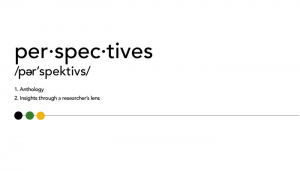Spring cleaning… a renewed sense of freedom and new beginnings. For what reason is spring cleaning so freeing?
In our acquire-it-all world, when we are not paying attention to our habit of accumulation, stuff surrounds us and sometimes suffocates our ability to move forward. Nobel Prize winning psychologist Daniel Kahneman poses an important distinction between how we value gains and losses, duly named [the] Prospect Theory and the Endowment Effect.
According to the Endowment Effect, when something becomes yours, you value it more than it is actually worth to others, and are thus less likely to want to part with it. Promotional give-aways are a good example, in which you are given some item (a free pen, sunhat, beach towel). Do you really need these items? Not really. It is hard to turn down a free gift, but once it is yours, beware, as it is harder to part ways with it. According to this profound Prospect Theory, we enjoy gaining (ergo, accumulating), but losing is much more difficult.
Lots of theories exist as to our rationale for keeping too much stuff, but all theories include the sense of control as a primary driver. We hope to read the stack of books or fit into a smaller size when we lose weight. Conversely, the sense of control we exercise to accumulate possessions results in these possessions controlling us. That is, guilt and shame result from the never lost weight or never read books that subconsciously serve as reminders of unaccomplished ambitions. The emotional expense of keeping these reminders relinquishes that sense of control.
According to Julie McCormick, clutter distracts you, weighs you down, and in general invites chaos into your life. Other studies indicate that too much of everything can clog our ability to breathe effectively, make sound decisions, and even lead toanxiety or depression.
Dr. Alan Castel, says, I doubt the Nobel Prize winning psychologists… were staring at all their useless clutter… when they came up with the Prospect Theory, but the endowment effect sure has some explanatory power in terms of why it is so hard for people to get rid of their prized junk.
If hoarder tendencies are causing drama in your life, purging can transform your environment and enhance your emotional health. To understand what to purge and what to keep, de-cluttering expert June Saruwatari, recommends what she calls a fourfold lens of “truth, love, meaning, purpose.” Hokey as this seems on the surface, it’s grounded in concrete questions:
- Do you honestly need this?
- Do you love it?
- Does it have some sort of significance in your life?
- Does it serve a purpose?
Igniting your purge power will certainly transform spaces, but most importantly it will evolve to a happier you!
Courage is the power to let go of the familiar.
Raymond Lingquist
* * * *
Lots of theories exist as to our rationale for keeping too much stuff, but all theories include the sense of control as a primary driver. We hope to read the stack of books or fit into a smaller size when we lose weight. Conversely, the sense of control we exercise to accumulate possessions results in these possessions controlling us. That is, guilt and shame result from the never lost weight or never read books that subconsciously serve as reminders of unaccomplished ambitions. The emotional expense of keeping these reminders relinquishes that sense of control.
According to Julie McCormick, clutter distracts you, weighs you down, and in general invites chaos into your life. Other studies indicate that too much of everything canclog our ability to breathe effectively, make sound decisions, and even lead toanxiety or depression.
Dr. Alan Castel, says, I doubt the Nobel Prize winning psychologists… were staring at all their useless clutter… when they came up with the Prospect Theory, but the endowment effect sure has some explanatory power in terms of why it is so hard for people to get rid of their prized junk.
If hoarder tendencies are causing drama in your life, purging can transform your environment and enhance your emotional health. To understand what to purge and what to keep, de-cluttering expert June Saruwatari, recommends what she calls a fourfold lens of “truth, love, meaning, purpose.” Hokey as this seems on the surface, it’s grounded in concrete questions:
- Do you honestly need this?
- Do you love it?
- Does it have some sort of significance in your life?
- Does it serve a purpose?
Igniting your purge power will certainly transform spaces, but most importantly it will evolve to a happier you!
Courage is the power to let go of the familiar.
Raymond Lingquist
* * * *
Perspectives represents behavior through a researcher’s lens. Voices from the research industry, academia, and medicine succinctly delivered. Our intent is to provide a collective news feed for elite professionals interested in market research diligence. Brevity and relevance is our mantra. Look for Perspectives in your inbox biweekly, every other Tuesday. We promise to deliver compelling and brief content to provoke and enlighten.
With respect and gratitude,
Barbara & your research team
Look for the next Perspectives in your inbox on Tuesday, May 3rd.
Don’t forget to click on the
Anthology articles!

